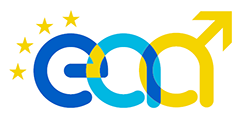EAA Educational Courses - Guidelines
The EAA is devoted to the development of andrological sciences and to disseminate knowledge in this field. To accomplish these tasks, the Academy organizes biennially the European Congress of Andrology (ECA).
Furthermore, the Academy organizes Schools and Educational Courses to cover the entire range of the EAA-ESAU Curriculum. One of the primary missions of the EAA Certified centres is to organize educational courses. The application for such courses should be sent to the EAA Office no later than 6 months in advance, with the exception of the webinars, which application could be submitted not later than 3 months before the course. The application form (available on the website) should be accompanied by a detailed program (topics, possible speakers, teaching methods, educational organization, pre-examination – to check a priori skills of the participants – lectures - clinical cases, interactive education, examination, checking the practical skills, literature, syllabus, etc.). The proposals will be evaluated by the EAA Educational Committee (EDUCOM).
Each Center should organize at least one Educational Course every five years, and it can involve more than one centres. Upon approval, the Educational Course’s program will be advertised on the EAA website. Furthermore, each Syllabus from the Courses will be uploaded to the EAA website (which will be accessible through individual login/password) as a potential source for preparing the EAA Clinical Andrologist exam.
The rules to adopt for the educational activities are as follow:
- The EAA approves and brands the educational courses through the EDUCOM.
- The Educational Course can be either
- a. ‘full’ (2 full days or more, with at least two nights)
- b. “short” (1 day and a half, with just one night)
- Webinars can be organized on any andrology topic listed at the last point. The typical format is one max 2 hours course, it can be prerecorded (but with live discussion), live, or hybrid form Longer webinars could be exceptionally proposed to the EDUCOM, providing a full detailed explanation for that need.
- e-Meeting format is acceptable only in the period when face to face meetings cannot be organized. These meetings should be at a maximum of 2 full days.
- Practical, professional, focused approaches to single andrological pathologies/areas are strongly encouraged for short Courses and webinars, while more general issues should be the theme(s) of full Courses.
- The Educational Courses may take place at any time, but they should not overlap with EAA schools, pre-ECA post-graduate courses. Local and EAA credits are earned by courses’ attendants who passed the post-course questionnaire. Three to five hours of teaching should correspond to 20-22 hours of homework and give 1 credit. It means that a 15-25 hours course will give 5 credits. Credits can be used for application to the “EAA Clinical Andrologist” examination. Out of 90 credits requested for the EAA Clinical Andrologist examination (see details in the specific document), a maximum of 18 (20%) can only be achieved by attending courses. Credits can be obtained from case contacts, and formal courses following the principle of the Credit Point System outlined in the Sorbonne (25/05/98) and Bologna (19/06/99) declarations. Credits can be obtained only from Courses providing:
- Courses in English or providing simultaneous translation
- Clinical cases
- Syllabus in English
- Pre- and post-course questionnaire in English
- The EDUCOM must be informed in advance and approve the scientific program.
- EAA (and its logo) is to be mentioned in all advertising material (posters, webpage, official communication) with the title: “European Academy of Andrology Educational Course.”
- At least one EAA officer is expected to address the meeting or the e-meeting (usually during the Opening Ceremony).
- Following the completion of the event, a “thank you” letter should be sent to EDUCOM, with a summary reporting the faculty, attendees and educational output.
- The EAA financially supports no more than two educational courses per year for the same Center with up to 2.500 and 4.000 euro per short and full course, respectively. Concerning e-Meetings, the EAA will support it with up to 1.000 euro. The EAA Office organizes Webinars, and therefore no additional support will be provided.
- Each center can organize several EAA Educational Courses approved by the EDUCOM, but only one can be financially supported by the Academy every two years. However, Webinars and e-Meetings organized by the same center can be supported by the EAA yearly.
- The Academy financially supports only the courses in English or providing simultaneous translation. However, an EAA Educational Course without financial support can be organized in the local language when all slides presented are in English.
- Companies can fully sponsor the Educational Course through unrestricted grants. In this case, the EAA will not support the Course economically.
- The organizing Center must charge different registration fees according to the attendee's status, the lowest for in-training students, followed by a reduced fee for EAA members/academicians and a regular fee for non-members.
- Sharing Educational Courses between ‘sister’ Societies (ESE, EAU, ESAU, ESHRE, ESSM, ecc.) is welcome and the partnership with local scientific societies.
- The presence of expert Academicians in the faculty is strongly encouraged but not mandatory.
- A proposal for an educational course should be in one or more of the following macroareas:
- Fertility and infertility
- Genetics, epigenetics and embryology in Andrology
- Hypogonadism and other endocrine and metabolic diseases of andrological interest
- Andrological cancers
- Urological problems in Andrology
- STD
- Sexual Medicine
- Research methods, diagnostic tools, therapeutic protocols of selected andrological pathologies

